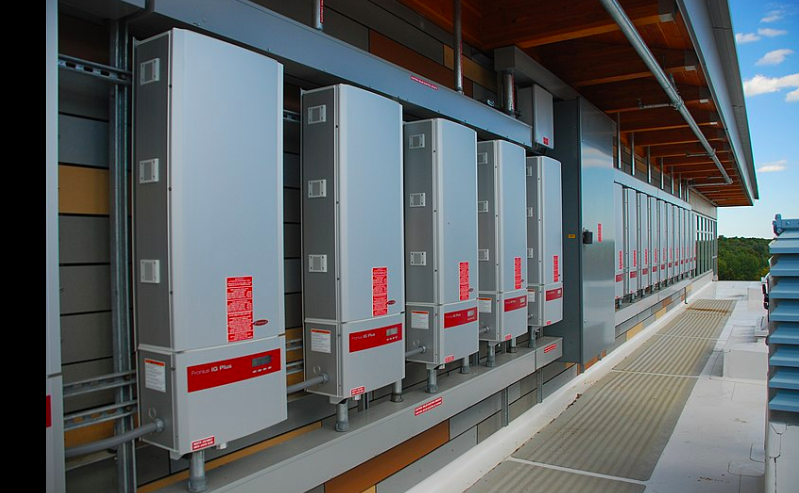From pv magazine global
Price pressure and strong competition will trigger more consolidation in the global inverter industry, according to a new report by Wood Mackenzie Power & Renewables.
The consultancy believes that the value of the global inverter market will further decline by 2024, although inverter shipments will continue to grow. “Total revenue for the top 5 global PV inverter vendors underwent a year-over-year decline of 10% last year,” the company said.
Beijing’s U-turn on solar subsidies in late May has been ramping up price pressure in the industry. “Price pressure is fairly constant in the inverter market, but 2018 saw a particular squeeze on vendors,” Wood Mackenzie said.
As a result, Chinese inverter makers have started expanding into more overseas markets. This has driven down sales prices, while Chinese manufacturers have increased their share of the global market from 22% in 2017 to 28% last year. “Chinese companies grew their market shares in Europe, Latin America and the Middle East last year,” the analysts said.
Producers of central inverters and three-phase devices are expected to see the largest turnover drop over the next five years. Companies that make microinverters, single-phase string inverters, DC optimizers and hybrid storage inverters may see their revenue increase, but the size of their respective markets will remain quite limited.
Consolidation looms
The authors of the report also pointed to complicating factors such as the sale of ABB’s inverter business to Italy’s Fimer and the Schneider Electric’s exit from the large-scale inverter business.
“Other companies are responding to price pressure by building out their internet-of-things platforms or making acquisitions to provide additional services,” the analysts added, noting that SolarEdge is one company that is trying to become a comprehensive smart energy company through a series of acquisitions. “The market will likely experience additional consolidation going forward due to price pressure, especially if companies are not successful in expanding or pivoting their scope of services to maintain profitability.”
Huawei, Sungrow and SMA were the three largest inverter providers in terms of shipments last year, Wood Mackenzie said in another report in May. They have held the top three spots since 2016. The research firm also said the top five inverter makers – rounded out by Power Electronics and ABB – saw their combined market share fall last year for the first time in six years, with the most dominant players seeing their share fall from 62% in 2017 to 56%.
This content is protected by copyright and may not be reused. If you want to cooperate with us and would like to reuse some of our content, please contact: editors@pv-magazine.com.









By submitting this form you agree to pv magazine using your data for the purposes of publishing your comment.
Your personal data will only be disclosed or otherwise transmitted to third parties for the purposes of spam filtering or if this is necessary for technical maintenance of the website. Any other transfer to third parties will not take place unless this is justified on the basis of applicable data protection regulations or if pv magazine is legally obliged to do so.
You may revoke this consent at any time with effect for the future, in which case your personal data will be deleted immediately. Otherwise, your data will be deleted if pv magazine has processed your request or the purpose of data storage is fulfilled.
Further information on data privacy can be found in our Data Protection Policy.